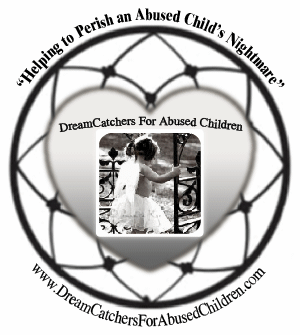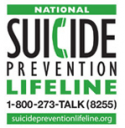Information entered into this form will be provided to law enforcement for possible investigation. You can contact the National Center for Missing & Exploited Children 24 hours a day at 1-800-THE-LOST. The CyberTipline® receives leads and tips regarding suspected crimes of sexual exploitation committed against children. More than 2.2 million reports of suspected child sexual exploitation have been made to the CyberTipline between 1998 and Dec. 2013. If you have information regarding possible child sexual exploitation, report it to the CyberTipline.
Purpose and function
 The CyberTipline is operated in partnership with the FBI, Immigration and Customs Enforcement, U.S. Postal Inspection Service, U.S. Secret Service, military criminal investigative organizations, U.S. Department of Justice, Internet Crimes Against Children Task Force program, as well as other state and local law enforcement agencies. Reports to the CyberTipline are made by the public and Electronic Service Providers. ESPs are required by law to report apparent child pornography to law enforcement via the CyberTipline (18 U.S.C. § 2258A).
The CyberTipline is operated in partnership with the FBI, Immigration and Customs Enforcement, U.S. Postal Inspection Service, U.S. Secret Service, military criminal investigative organizations, U.S. Department of Justice, Internet Crimes Against Children Task Force program, as well as other state and local law enforcement agencies. Reports to the CyberTipline are made by the public and Electronic Service Providers. ESPs are required by law to report apparent child pornography to law enforcement via the CyberTipline (18 U.S.C. § 2258A).
Reports are continuously triaged to help ensure children in imminent danger get first priority. Analysts review reports and:
- Examine and evaluate the content.
- Add related information that may be useful to law enforcement.
- Use publicly available search tools to determine the geographic location of the apparent criminal act.
- Provide all information to the appropriate law enforcement agency for potential investigation.
The CyberTipline reporting mechanism assists law enforcement and prosecutors in their detection, investigation and prosecution of child sexual exploitation crimes. The CyberTipline helps make law enforcement’s efforts more efficient and maximizes the limited resources available in the fight against child sexual exploitation. The value of the CyberTipline as a source of leads for law enforcement has been greatly enhanced by collaboration with ESPs.
In addition to referring CyberTipline reports to law enforcement for potential investigation, the National Center for Missing & Exploited Children® engages with the Internet industry on voluntary initiatives to reduce child sexual exploitation online.
Possession, Manufacture and Distribution of Child Pornography
Federal law defines child pornography as the visual depiction of a minor younger than the age of 18 engaged in sexually explicit conduct (18 U.S.C. §2256). It is a crime to possess, manufacture and/or distribute child pornography (18 U.S.C. §2251 et seq.)
Online Enticement of Children for Sexual Acts
It is a crime to use the Internet to knowingly persuade, induce, entice or coerce a child younger than the age of 18 to meet for sexual acts or to attempt to arrange such a meeting (18 U.S.C. §2422(b)).
Child Sex Trafficking
It is a crime to knowingly recruit, entice, harbor, transport, provide or obtain by any means a child younger than the age of 18 to engage in a commercial sex act. It is also illegal to benefit, either financially or by receiving anything of value, from participation in a prostitution venture in which children are victimized (18 U.S.C. §1591).
Sex Tourism Involving Children
It is a crime for a U.S. citizen to travel to another country intending to engage in sexual activity with a child younger than 18 that would be illegal if it occurred in the U.S. (18 U.S.C. §2423). Individuals who commit these crimes are subject to prosecution in the U.S. even if the crime was committed on foreign soil.
Extrafamilial Child Sexual Molestation
Extrafamilial child sexual molestation is the sexual abuse of a child by someone other than a family member.
Unsolicited Obscene Material Sent to a Child
It is a crime to send obscene material to a child younger than the age of 16 if the sender knows the recipient is younger than the age of 16 (18 U.S.C. §1470).
Misleading Domain Name
It is a crime to knowingly use a misleading domain name on the Internet with the intent to deceive a minor into viewing material that is harmful to minors (18 U.S.C. §2252B(b)).
Misleading Words or Digital Images on the Internet
It is a crime to knowingly embed words or digital images into the source code of a website with the intent to deceive a minor into viewing material that is harmful to minors (18 U.S.C. §2252C).
SOURCE: CyberTipLine
 Each state has a law in place to allow an unharmed infant to be relinquished to the proper authorities, no questions asked. The National Safe Haven Alliance works with states to promote these laws and increase public awareness that options exist. Together, the Alliance and states work together to save the lives of innocent infants and to protect the lives of their mothers.
Each state has a law in place to allow an unharmed infant to be relinquished to the proper authorities, no questions asked. The National Safe Haven Alliance works with states to promote these laws and increase public awareness that options exist. Together, the Alliance and states work together to save the lives of innocent infants and to protect the lives of their mothers.










 The CyberTipline is operated in partnership with the FBI, Immigration and Customs Enforcement, U.S. Postal Inspection Service, U.S. Secret Service, military criminal investigative organizations, U.S. Department of Justice, Internet Crimes Against Children Task Force program, as well as other state and local law enforcement agencies. Reports to the CyberTipline are made by the public and Electronic Service Providers. ESPs are required by law to report apparent child pornography to law enforcement via the CyberTipline (18 U.S.C. § 2258A).
The CyberTipline is operated in partnership with the FBI, Immigration and Customs Enforcement, U.S. Postal Inspection Service, U.S. Secret Service, military criminal investigative organizations, U.S. Department of Justice, Internet Crimes Against Children Task Force program, as well as other state and local law enforcement agencies. Reports to the CyberTipline are made by the public and Electronic Service Providers. ESPs are required by law to report apparent child pornography to law enforcement via the CyberTipline (18 U.S.C. § 2258A).



















![Validate my RSS feed [Valid RSS]](http://dreamcatchersforabusedchildren.com/wp-content/uploads/2009/10/valid-rss.png)












